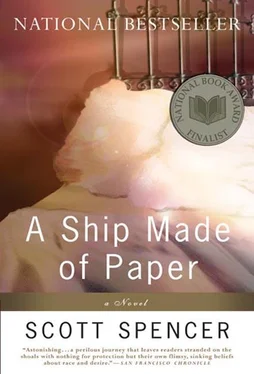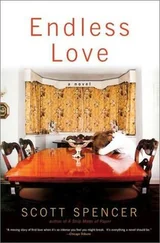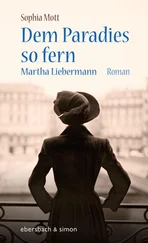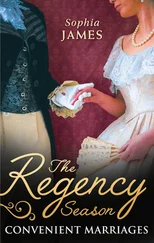It takes Daniel nearly halfan hour to drive the five miles between Eight Chimneys and Iris’s house on Juniper Street.Some roads are already closed, and on others the traffic barely crawls.He is listening to a mix tape he made—Don Covay, Marvin Gaye, Ray Charles, IrmaThomas.He curses the storm, the roads, the other drivers, and imagines himself making love to Iris.He thinks about her voice, the slightly spoiled, slightly shy, and always shifting quality ofit.He is envious ofnot only Hampton but her fellow students, the library staff, the7-Eleven clerks, the shopkeepers up and down Leyden’s miniature Broadway, a man named Timmy Krauss, who mows her lawn, the tellers at Leyden Savings Bank, even Nelson.
He pulls into the driveway behind Iris’s car.A branch from one ofthe four maples on her front lawn, as long and thick as a stallion’s hindquar-ters, has snapped offfrom the weight ofthe snow and it sticks like a spear into the ground.Daniel looks up.The downward rush ofthe snowflakes, unusually large, looks like the blur ofthe stars when a space-ship accelerates into warp speed.He hears the creaking wooden sound ofa window opening.
“Let yourselfin, okay?”It’s Iris from the second story.She has stuck her head out the window and her short black hair whitens instantly.“I’m up here with the kids.”Her voice rings out in the silent world.
He steps into her entrance hall and peels offhis gloves, feels the melting snow trickling down his back.There are raucous screams ofcrazy ex-citement coming from Ruby, who is beside herselfwith joy to be in Nelson’s house.He hears Iris moderating.
Because the pickups and deliveries ofRuby generally fall to Daniel, he has been to this house ten or fifteen times, but each time Iris has Ruby dressed and ready to go upon his arrival.Nevertheless, in those moments ofpolite exchange, he has breathed in the smells ofher domesticity—the aromas ofwhatever meal was being prepared, the smell ofa newly painted room, ofeucalyptus stalks stuck into a beaded glass vase that stood upon an end table in the living room, just visible from where he usually stood.He has taken in everything there was to see in the foyer it-self:the blue-and-silver-striped wallpaper, the illustrative hooked rug (streetlamp, horse and buggy),the tiger maple table near the door, with its resident wicker basket filled with junk mail, the occasional stray mit-ten, and the curling cash register tape from the supermarket.From this he learned that her purchases included such items as Playtex tampons, and Dry Idea deodorant, Marcal bathroom tissues, Sominex sleeping pills, Tom’s Natur-Mint mouthwash, Revlon emery boards, Tylenol PM.
Outside:the crack offalling trees.For a moment it seems the electric power will go out here, too.
Iris comes downstairs, beckons him in.She has taken offher shoes;
her socks are bright electric blue.She wears a loose-fitting yellow sweater, jeans.She is a woman at home, she has put the world behind her.
“Are the kids okay?”Daniel asks.
”Ruby’s amazing.She’s got such compassion and wisdom in her eyes.
I love looking at her.”
Daniel feels unaccountably moved by this.It seems somehow more tender and appreciative than anything Kate has ever said.Kate loves Ruby, ofcourse she does, but she has no patience for motherhood.Its unending quality confounds and irritates her.Kate longs for privacy, for uninterrupted mornings, for what she calls her DreamTime.
“Have you ever been to Ruby Falls?”Iris asks.
”No, where is it?”
“InTennessee, outside Chattanooga.It’s an underground waterfall, the biggest in the world, and it’s red.Well, they might just shine red lights on it to make it look that way.I was ten years old when my family went there.I mostly remember how hot it was outside and how cool it was in that cave, and that everyone on the tour was white, but they were super nice to us.”
“How wonderfully civil ofthem,”Daniel says.
”I wasn’t really used to seeing white folks, not then.I was so nervous.”She sighs, closing the subject.Then:“I’m going to have some tea.
Do you want some?”
He remembers the appearance oftea on one ofher IGA receipts:Celestial SeasoningsAlmond Sunset and Celestial Seasonings Emperor’s Choice.
“Sure.”He is still in the foyer, stomping loose the snow that was jammed into the waffle sole ofhis shoes.“Tea would be great.Do you have like an almond tea or something?”
“As a matter offact, I do,”says Iris.
The dog comes in.Daniel crouches down to let Scarecrow sniffhis hand.She has no tail but moves her rump back and forth to signal her ac-ceptance ofhim.He strokes her lightly on the top ofher head and she makes a low groan ofpleasure.
“This dog is Jesus,”he says, glancing up at Iris.He turns back toward Scarecrow.“Are you Jesus?”
“Don’t answer that, Scarecrow,”Iris says.
It strikes him with the force ofrevelation that this is the most fun he has ever had, ever, in all his life, this is the pinnacle, the greatest happi-ness he has ever known, right there, asking the dog ifshe is Jesus, and Iris telling the dog not to answer.
They walk across the living room, with its bay windows, dark mahogany molding, a white marble mantel over the fireplace.On the north side ofthe room, French doors lead to the dining room;on the south, a newly hung door leads to the kitchen.Daniel stops at the rack ofcom-pact discs to see what music she listens to and feels a rush ofconfusion, disappointment as he reads:Fleetwood Mac, Tony Bennett, Boyz2Men, Aaron Copland.
“I can’t believe you like almond-flavored tea,”she says to Daniel as they enter her kitchen.“To me, it tastes like arsenic or something.What is it, a guy thing? It’s the only tea my husband will drink.”
Iris cannot bear chaos.Beyond the rituals and reassurances ofdaily life lies danger.Go offthe road—danger.Swim in the dark—tragedy.Those people in London all huddled in the subway stop while the bombs dropped? She would never have been able to do it.She’d hang herself first.Life without its presumption ofreasonable safety—intolerable.
She is aware ofa slow, engulfing terror growing within her.She has been holding her panic in check for a couple ofhours now, telling her-selfthat the storm and all those exploding trees are part ofNature, and she is fully capable oftaking it in stride.But she cannot take it in stride, she cannot even stride, she feels trapped, waiting for something terrible to happen.And knowing that it’s all in her head doesn’t make it better; in fact, it makes matters worse—how do you hide from your own mind?
Night has come.It seems to be snowing harder now than it was an hour ago.The daytime sky was just running out ofsnow when the night sky rolled into place with a fresh supply.There is no fear that is not worse in the darkness.
Daniel.It astonishes her how closely he listens to her, how he leans toward her when she speaks and nods his head, yes, like the ladies in her grandmother’s church, theAmen choir, in front ofwhom you could sing, or cry, and never feel the slightest shame.He seems to remember every-thing she has ever said to him, starting with their first hello.Like most married people, she is used to being heard only by half, and has even got-ten used to being ignored.Daniel not only listens, he seems to possess, to embrace the things she says to him.Six months ago, she said she had de-cided her thesis dissertation would be on some aspect ofParchman Farm, and today, sitting in her kitchen, with the candles in their holders and a box ofOhio blue tips at the ready, she learns that Daniel has read Worse Than Slavery, one ofthe best books about Parchman.It initially gives her a guilty, embarrassed feeling because she’s moved on from Parchman, it just didn’t feel right—she might, in fact, have abandoned it later the same day she’d mentioned it to Daniel.She has been having a difficult time set-tling on a thesis;jumping from one possible topic to the next has been the source ofno small number ofnasty remarks from Hampton, who wants her to get her Ph.D.and move back to the city.But Daniel doesn’t mind when she softly confesses that she has left Parchman behind.
Читать дальше












